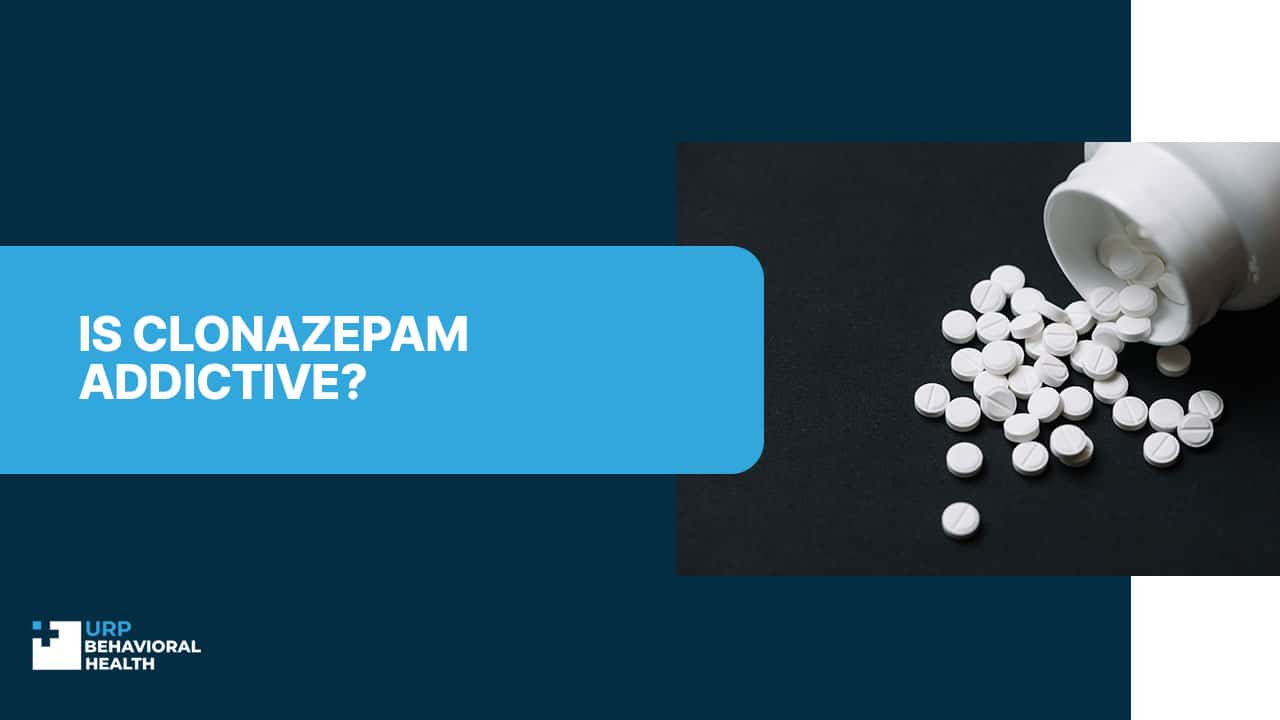
Is Clonazepam Addictive?
Clonazepam is a popular drug that appeared in 1960. It was released under such brand names as Klonopin, Rivotril, etc. It’s among the top 100 best-selling drugs in the USA, with millions of units sold. [1] Clonazepam has a strong, long-lasting tranquilizing effect. With its efficiency, though, there is a risk of the development of addiction. This potential adversary factor should be carefully considered to identify patients at risk.
Don’t wait - confidential help is available right now for you or your loved one.
What is Clonazepam?
This tranquilizer is used for treating such conditions as anxiety disorders, seizures, and bipolar mania. It also stops agitation symptoms connected with some mental issues like psychosis and OCD. [2] Clonazepam is usually meant for oral administration. Its dosage depends on the diagnosis and is prescribed individually. Like any other drug, this medication has some side effects. Drowsiness or sedation, dizziness, and coordination problems are the most common among them.
How Addictive is Clonazepam?
One of the most significant questions about clonazepam is it addictive. The short answer is yes. The longer one, there are some factors impacting the addiction potential of this drug:
- Rapid onset and long half-life. The effects of the drug unfold within an hour. At the same time, clonazepam leaves the body for up to three days, staying active.
- Tolerance development. Users may need higher doses over time to achieve the same therapeutic effects. It results in physical addiction even when used correctly.
- Psychological effects. Clonazepam frees patients from anxiety or stress, giving them feelings of relaxation and euphoria. It easily may lead to psychological addiction from the medication.
- Polydrug use. Alcohol and opioids enhance the euphoric effects of clonazepam. Their combination makes the possibility of developing dependence much more likely. [3]
Reach out today and let us create a treatment plan designed around your needs.
Who Is at Risk of Clonazepam Addiction?
After revealing how addictive is clonazepam, let’s find out who might be in a risk group:
- People with a history of substance abuse. A problematic habit of using alcohol or drugs dramatically increases the risk of clonazepam addiction. Besides, as noted above, the consumption of the medication with these substances makes the whole effect much more powerful. It creates the temptation, which will be difficult to resist.
- Mental disorders. Clonazepam has a pronounced tranquilizing effect. It helps people struggling with anxiety or stress. Therefore, patients with similar conditions may find the idea of self-treatment appealing. It may lead to misuse and overdoses.
- Long-term use. The more a user takes clonazepam, the stronger the habit is. It’s a direct road to addiction.
- Higher dosages. Uncontrolled raising of doses over prescribed ones accelerates the risk of dependence. [4]
Clonazepam was invented in the mid-20th century and quickly gained popularity. It’s a tranquilizer with strong long-term effects. This medication helps treat some mental issues where nerve-calming is desired. Still, there are some side effects, and the addiction risk is one of them. Clonazepam addictive potential is relatively high and shouldn’t be treated lightly. It’s specifically important for patients coming from particular groups of addiction risks. If you seek professional help during a difficult period in life, contact our specialists from URP Behavioral Health.
Our team will verify your insurance and design a plan tailored to your needs.
References:
- The Top 300 of 2022. https://clincalc.com/DrugStats/Top300Drugs.aspx
- Clonazepam (Monograph). https://www.drugs.com/monograph/clonazepam.html. Oct 30, 2024
- UK Rehab. Clonazepam Addiction. https://www.uk-rehab.com/prescription-drug-addiction/benzodiazepine/clonazepam/
- Danny Smith. Klonopin addiction. https://www.oasisrehab.co.uk/addiction/prescription-drug/benzodiazepine/klonopin/. Nov 27, 2024
















